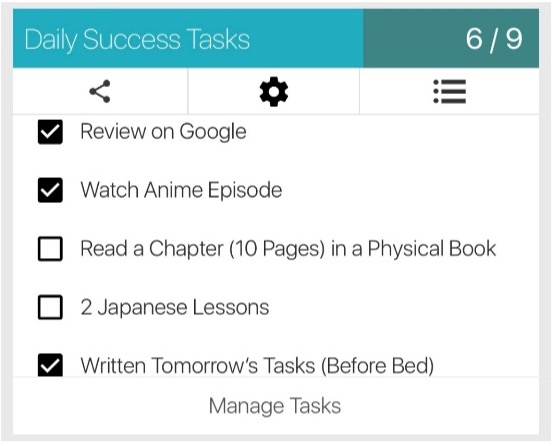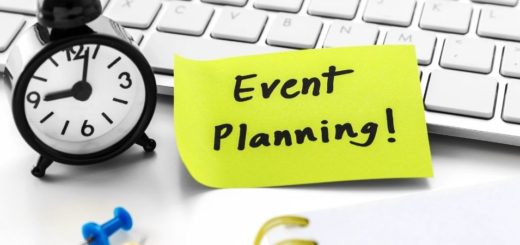How to (Video-)Gamify Your To-Do List
I love video games. At age five, I stomped my first Goomba as Mario, and I haven’t missed a daily log-in to Genshin Impact for over a year. Nothing motivates me like a list of achievement trophies or a completion percentage. From map exploration and secret endings to bestiary compendiums and side-quests, I love the feeling of 100%-ing a video game.
One day, I thought: “If I could tackle daily life like I do video games, think of how much I could accomplish!” So, I decided to level up my to-do list by gamifying it. Not only has this technique improved my focus and motivation, but it’s also helped me to get much more done in less time.
Now, I’m sharing my personal method with you. Whether you use it as-is or modify it to suit your tastes and preferences, I hope it gives you something new to add to your time management toolkit!
1. Find a Medium That Works: There’s an App for That!

The first step in gamifying my to-do list was to find a format that worked for me. I had learned from playing video games that achievements strongly motivate me. I like seeing my percentage bar fill up toward a goal. I also like the idea of to-do lists; however, I find pen-and-paper ones to be time-consuming and easy to lose.
I decided that making my to-do list digital would be a great way to keep it on-hand 24/7 (no more losing sticky notes!), as well as allow me to edit and reset it each day (no more wasting paper!).
I found a free app called Raise the Bar, which let me create simple, customized to-do lists. I made one unique to-do list for each day of the week (Monday to-dos, Tuesday to-dos, etc.), as well as a daily tasks to-do list (more on this below). Best of all, these to-do lists show a percentage bar so that as I complete tasks, I can see what percentage I have left to reach my daily goal.
As you seek to find something that works for you, consider:
- What game mechanics motivate you (i.e., leveling up, completion, achievements, etc.)?
- Do you prefer physical pen and paper or using a digital app?
- If you prefer apps, which ones do you like best? (Raise the Bar, iPhone Calendar/Notes, Google Tasks, etc.)
- If you prefer a physical to-do list, what format do you like best (sticky notes, pocket planner, wall calendar, whiteboard, etc.)?
2. Choose Your Goals: What Are You Leveling Up?
Especially when playing an RPG (role-playing game), it’s important to know your goals for your character. This determines which stats you focus on, your activities and missions, and how you answer prompts. For example: If your goal is to play a wizard character, but you use all your points on heavy armor stats instead of magic stats, you’ll have a hard time down the road!
The same goes for your to-do list. It’s important to identify your goals before you start making your to-do list. Ensure every task on your to-do list gets you one tiny step closer to those goals.
Your goals might include multiple focus-areas, such as:
- Personal: Writing a 50,000-word fantasy novel by the end of the year
- Health: Losing 15 pounds in 12 months
- Relationships: Texting your extended family members once a week
- Academic: Completing your degree within two years/maintaining all As and Bs
- Career: Applying to three internships during the summer
- Spiritual: Attending church once a week/meditating three times a week
Get more tips on writing and setting strong goals.
3. Identify Your Daily Tasks: Your Daily Log-Ins

If you play online games, you’re probably familiar with the daily log-in bonus — a prize you get for simply starting up the video game every day and completing daily challenges (such as battles or missions).
I apply the concept of the daily log-in to my to-do list. One of my virtual to-do lists is programmed to reset every morning at 6:30 AM when I wake up. This daily to-do list features activities I complete every day of the week.
Here are some examples:
- Write 500 words
- Watch an episode of anime
- Read 10 pages of a book
- Complete 10 minutes of research in my area of interest
- Do 25 sit-ups
- Drink six glasses of water
- Write my list of tasks for tomorrow
- Complete two lessons of Japanese in Duolingo
- Pray/medicate/reflect for five minutes
- Send a text to a friend/family member
- Study for 30 minutes
Try to limit your daily to-do List to no more than 10 tasks per day, and ensure they’re manageable. When in doubt, start small with the most basic commitment possible.
Remember: Your daily to-do list comprises tasks that maintain who you are — your health (physical, emotional, and spiritual), your lifestyle, your hobbies, and your relationships.
4. Identify Your Unique Daily Tasks: Your Limited-Time Events
Video games often feature unique, limited-time events. These usually last for a short period of time and must be completed within a certain timeframe — or they’re gone forever.
Unlike your daily to-do list, which you complete every single day, your unique daily to-do list should include tasks that you want to complete on specific days of the week. For example:
- Work out for 30 minutes (Monday, Tuesday, Wednesday, Friday)
- Study for biology exam (Monday, Tuesday, Wednesday, Thursday)
- Schedule a doctor’s appointment (Tuesday)
- Attend Green Dot Bystander Training at EFSC (Friday)
- Reflect on my progress for 15 minutes (Friday, Sunday)
- Work on my Instagram account for 15 minutes (Monday through Friday)
- Take a minimum three-hour break from work (Saturday)
- Lunch with friends (Wednesday)
Unlike your daily to-do list, your unique daily to-do list will change. Some tasks may stay the same (every Monday, you call your friend on your drive home from work, school, etc.), but some will shift as new obligations, goals, and needs enter your life.
To make the most of your unique daily to-do list, write the next day’s list the day before (write Tuesday’s list by Monday night, for example). This way, you can jump straight into the next day with ease!
5. Reward Yourself: Choose Your Loot Drop

This part’s optional. However, especially early on, rewarding yourself for achieving your to-dos can be very motivating. In a video game, conquering a challenging boss or completing a side-quest earns you a handful of special (and sometimes rare) rewards — so let’s apply this concept to our productivity, too!
In my to-do list app, I have a percentage bar called a Reward Meter. Each day that I complete all of my to-dos, one point is added to the meter. Once I fill up that meter with 30/30 points, I give myself $10 to spend on a special treat.
For example:
- Subscriptions to streaming platforms, online video game currency, or magazines
- Food or drinks I love (sushi, muffins, desserts, ice cream, tea, etc.)
- Entertainment (movie tickets, books, etc.)
Pro Tip: Make your reward something you can live without — something that’s truly a treat and not something you would buy for yourself anyway.
6. Build in Reflection Time: Optimize Your Equipment
I love stories. When I play a video game, it’s tempting for me to rush through it to find out what happens next. However, this can prove disastrous. Throughout the game, I earn special equipment, weapons, and abilities that help me survive the next level. But if I never pause to look at my character’s stats, change their equipment, and upgrade their weapon, I’m setting myself up for failure.
Your goals are the same. You must occasionally pause and reflect on your current stats and progress to see if anything needs adjusting. I recommend adding a minimum of 15 minutes of reflection time to your to-do list once a week (on your least busy day). This way, you’ve built it directly into your daily goals.
Reflecting will help you to set new goals, check your progress on current goals, and adjust any steps or commitment time you’re spending on those goals.
Ready to Gamify Your To-Do List?
Eastern Florida State College’s Career Services team can help you set goals for your to-do list that are aligned with your future career plans and professional development. (Be sure to also check out our self-paced SMART Goals workshop!)
You can meet with a Career Center Coordinator by phone, via Microsoft Teams, or in person. We look forward to helping you achieve your goals this semester. Now, game on!
- Leave Your Legacy (Paver) at EFSC - April 24, 2024
- Five Anime To Watch in College - April 10, 2024
- Dress for Success: All About the Titan2Titan Clothing Closet - April 3, 2024







